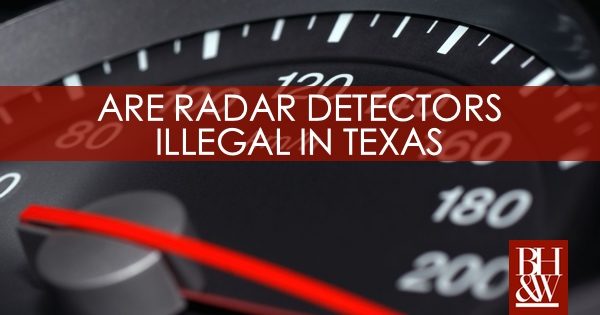Does the State or the Defense have the Burden of Proof?
 Arias v. State – 14th Court of Appeals (Houston) 2011
Arias v. State – 14th Court of Appeals (Houston) 2011
Carlos Arias was observed speeding by a police officer and pulled over. Arias was unable to provide proof of financial responsibility (proof of insurance), when asked by the police officer. Arias went to trial in the municipal court of record and after the close of State’s case-in-chief, Arias claimed that there were statutory exceptions to the requirement to establish financial responsibility and that the State had not negated them. He appealed his conviction to the County Criminal Court at Law.
Generally, when a penal statute includes an exception as part of the statute itself, the State must negate the existence of the exception in the indictment of the offense and prove beyond a reasonable doubt that the defendant or defendant’s conduct does not fall within the exception. Failing to negate an exception is the same as failing to allege an essential element of the offense and renders the indictment void. However, when an exception is in a separate section from the provision that states the offense, it is not essential for the State to negate the exception. This is different from an exception and called a defense, which must be raised by the defendant.
An “Exception” or a “Defense”
The key distinction is who has the burden of proof—an exception means the prosecution must prove beyond a reasonable doubt or the defendant should be acquitted; a defense means a defendant bears the initial burden to produce some evidence that supports the defensive theory. Once the defendant produces such evidence, the State then bears the ultimate burden of persuasion to disprove the defense beyond a reasonable doubt. So, to be clear, the defense does not bear the “burden of proof,” but only a burden to produce some evidence of the defensive theory. The burden then shifts to the state to disprove the defense.
The Court of Appeals found that no Texas court has determined whether the State must negate the exceptions to the financial responsibility requirement as an element of the offense or whether the exceptions are defenses that must be raised by the defendant. The Court of Appeals looked to the statute in the Transportation Code and decided if exceptions or defenses are listed. To do this they decided whether they are a necessary part of the definition or a description of the offense.
The Court first looks to the main code of “Requirement of Financial Responsibility.” They then found in a separate subsection, “Exceptions to Financial Responsibility,” which Arias relies on. The code only states that a person commits an offense if the person operates a motor vehicle in violation of the “Requirement of Financial Responsibility” section, but the exceptions are not mentioned.
The court finds that because they are not mentioned in the offense, the exceptions are therefore not a necessary part of the definition or description of the offense. This means that these are not exceptions that the State must negate, but merely defenses that the defendant has the option to bring evidence in to prove. Additionally, the State is not generally required to negate as an element of the offense matters “peculiarly within the knowledge of the defendant.” Here, these exceptions are things such as the character of the car, such as older than 25 years old. The court holds that under most circumstances, the defendant would be more likely than the State to know whether one of the exceptions applies.
This can be absolutely crucial for building your defense. An exception can get you acquitted if the State doesn’t prove beyond a reasonable doubt, whereas a defense is merely a chance to persuade the judge or jury. It appears that the key deciding factor is whether the “exceptions” are listed with the main code or are in a separate subsection.










